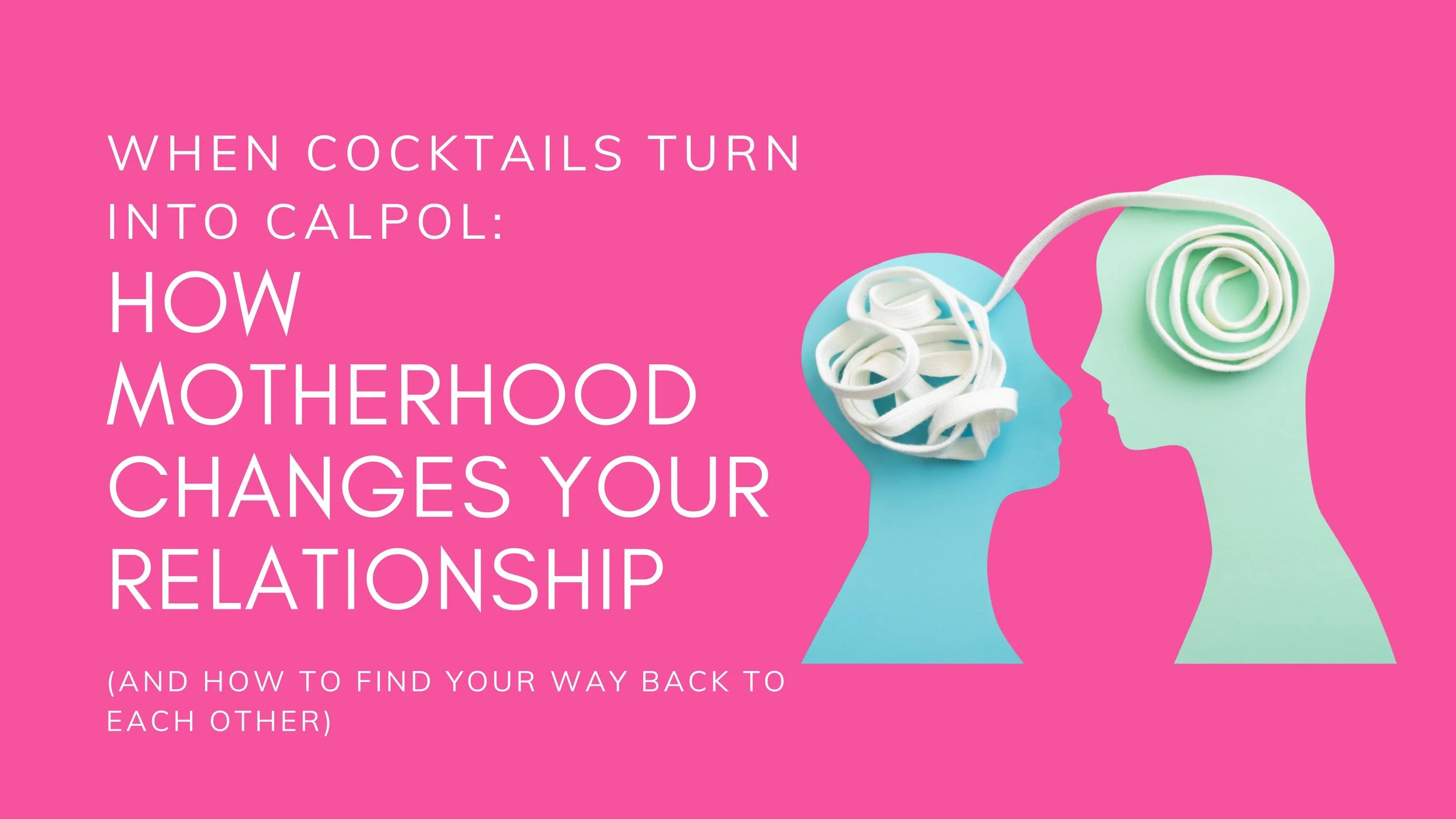When Cocktails Turn Into Calpol: How Motherhood Changes Your Relationship (and How to Find Your Way Back to Each Other)
Last week, I celebrated my 15-year wedding anniversary.
Fifteen years of love, laughter… and, let’s be honest, a wild variety of seasons. There was the “late-night cocktails and spontaneous weekends away” era - and then there was the “late-night Calpol doses and negotiating whose turn it is to settle the toddler” era.
Somewhere between wedding vows and baby monitors, the dynamic of our relationship shifted. Not in a dramatic, movie-style way - more in a slow, sneaky, "oh hang on, when did we stop actually talking about anything other than bins and bedtimes?" kind of way.
When I became a mum, I expected nappies, night feeds, and constant snack requests. What I wasn’t prepared for was how much motherhood would reshape my relationship.
Becoming parents was beautiful… and also, at times, brutal.
There were moments of pure magic - a new sense of teamwork, pride, shared joy. But there was also grief. Grief for our old life. Grief for spontaneity. Grief for sleep.
My eldest daughter would not sleep unless she was laying on me. So I spent months half-upright on the sofa, watching back-to-back episodes of Hawaii Five-0 while my husband slept peacefully upstairs.
I loved him. I adored my baby.
And I was furious - because he got to sleep. He got to get up and go to work and still be himself. Meanwhile, I felt like I had dissolved into a milk-dispensing, sleep-deprived emotional support cushion.
That intimacy we once had - just sharing a bed, whispered conversations in the dark, lazy Sunday mornings - vanished.
Not because anything was wrong between us. But because motherhood physically rearranges your life, your body, your routine - and if you’re not careful, your connection too.
Why Motherhood Changes Your Relationship
Nobody warns you about this bit. They talk about labour plans, prams and growth charts - but not about the relationship identity crisis that often follows.
Here’s why it happens:
One of you (usually mum) becomes the Default Parent. Even if it’s not spoken, the lion’s share of childcare and mental load often lands on mum’s shoulders. Resentment quietly builds.
You stop being lovers and become co-managers. Your conversations become logistics. "Have you paid nursery?" replaces "How are you feeling?"
Sleep deprivation changes your personality. You’re not irritable - you’re exhausted. There’s a difference.
Your identity shifts overnight. You’re no longer just you - you’re Mum. Meanwhile, your partner gets to remain themselves plus Dad. That can sting.
Touch becomes transactional. You’re touched-out, milked-out, held onto all day long. By bedtime, the idea of someone else touching you might make you want to hiss like a feral cat.
This isn’t about blame. It’s just the reality of what happens when two people are thrown into one of the most intense life transitions there is.
Common Pressure Points (That No One Talks About - But We’re Going To)
To normalise it, here are some feelings mums often have but rarely say out loud:
“I love my partner, but I sometimes feel like we’re just housemates with kids.”
“I feel invisible - like nobody sees how much I actually do.”
“I miss the old us, but I don’t know how to get back there.”
“I feel like I’m holding everything together, and if I stop, everything will fall apart - and no one even notices.”
“I get angry at him for having freedom I don’t.”
If any of that hits home - you're not failing. You're human.
How to Talk About It (Without Starting an Argument)
If you’ve quietly collected resentment like Tesco Clubcard points, it’s time to talk - before it bursts out sideways during a conversation about dishwashers.
Here’s a simple communication tool that helps you be clear without sounding attacking:
Use this sentence structure:
❝ I feel… when… what I need is… ❞
Example
Try not to say:
“You never help with bedtime - I’m doing everything!”
Instead try:
“I feel overwhelmed when I have to do bedtime on my own every night. What I need is for us to take turns so it feels more balanced.”
It’s honest. It’s kind. It doesn’t start with “you always” or “you never” (which, let’s face it, are opening lines to war).
Here are a few other gentle conversation starters:
“I’m noticing we’ve been in logistics mode for ages - I miss us.”
“Can we talk about how things are shared at the moment? I don’t want resentment to build.”
“I know we're both tired, but I want to feel like teammates again. How can we make space for that?”
Simple Ways to Reconnect (Even If You’re Too Tired for ‘Date Night’)
Sitting together after bedtime and asking “How’s your brain today?” instead of watching TV in silence
Swapping roles for a day to build empathy
Leaving each other appreciation notes (yes, like teenagers - it works)
Holding hands in the car
Saying “Thank you for…” more often - simple acknowledgement is rocket fuel for relationships
A Final Thought
Your relationship is allowed to change. It should change - because you’ve both changed.
But changed doesn’t mean broken.
It just means you might need to consciously rebuild a new version of “us” - one that fits who you are now, not who you were before kids.
And if you need some support navigating that shift - that’s exactly what I help with.
Want to talk it through? Book a free discovery call and let’s have an honest chat about where you are, where you’d like things to be, and how we can get you there - gently.
Motherhood doesn’t have to cost you your connection. You deserve to feel loved - not just for what you do, but for who you are.


